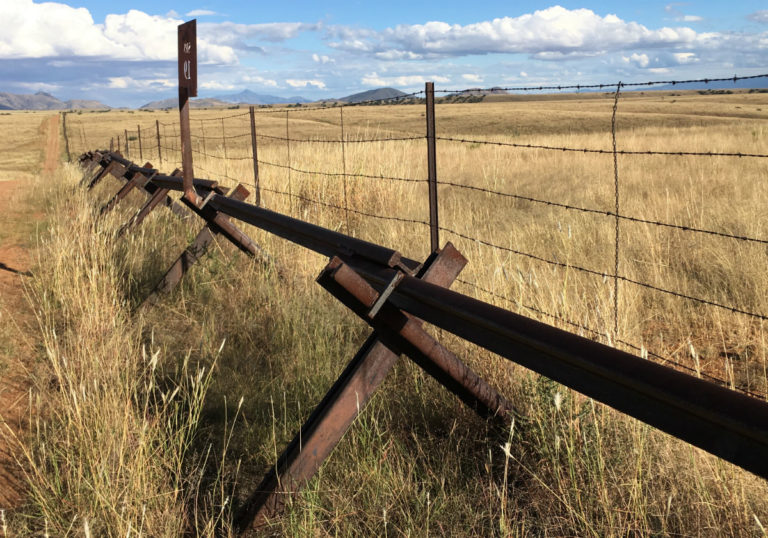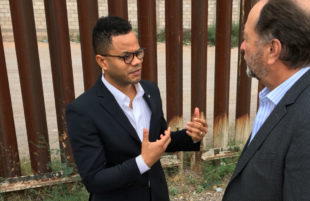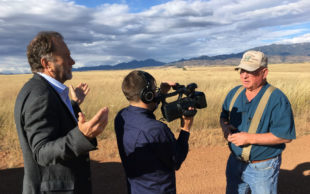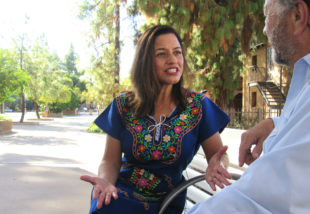Commentary by Andy Brack, editor and publisher, Phoenix, Ariz. | An old joke around here is that if there’s ever a 30-foot border wall built to thwart illegal immigrants, it won’t be long before a lot of companies start building 32-foot ladders.
 While the national furor over immigration reached a fever after candidate Donald Trump launched xenophobic campaign rhetoric to build a wall, immigration politics is old hat in Arizona, cropping up year after year as a political hot button.
While the national furor over immigration reached a fever after candidate Donald Trump launched xenophobic campaign rhetoric to build a wall, immigration politics is old hat in Arizona, cropping up year after year as a political hot button.
In 1986, President Ronald Reagan pushed through immigration reform that allowed amnesty for undocumented workers. In turn, families moved north to be with undocumented workers who decided to stay. Then came the September 11 attacks that fueled fear and worry about border security, which led to searches, traffic stops and more of people with brown skin. Nowadays, it’s hard to pick up a newspaper or turn on the television without the politics of immigration rearing its head. Meanwhile, the northerly flow of people, now mostly from Central America, heading into the United States for better opportunities continues.
From now through election day, a documentary film team from Australia and America is traveling across the country to find out what’s driving politics locally and nationally as the 2018 midterm elections approach. In Arizona, for example, the airwaves are filled with ads related to immigration and education. In the weeks ahead, the team will be in South Carolina, MInnesota, Iowa, Indiana and Pennsylvania to find out what’s really going on America that’s missed by polls and preconceived notions.
In Arizona, it’s clear the polarizing immigration debate is much more complex than the fear-mongering mantra, “Build the wall.”
The people we talked with are looking for real solutions to curb the tide of illegal immigrants, but without the country losing its ideals as a home for legal immigrants to realize the American dream.
In the border city of Douglas, a southeastern Arizona community of 17,000, Democratic Mayor Robert Uribe says historically there’s been a healthy relationship between its sister city of Agua Prieta, population 80,000, just across the border. Mexicans and Americans cross daily to shop and do business. But after Trump took office, the American city saw its tax revenues drop at least 30 percent because fewer Mexicans shopped in local stores. Why? Because they were scared of the charged political environment.
Since then, Uribe says he’s worked to partner with the sister city and assure people along the border than the two cities need to remain unified and continue to work together. Visitors have returned. But what the area needs, he says, is more money to pay for infrastructure to beef up security at the border checkpoint to keep out illegal drugs, 70 percent of which come into the country via vehicles in land ports like that in Douglas.
About 60 miles east in the San Rafael Valley, Dr. Gary Thrasher, a local veterinarian, pointed to the international boundary with Mexico — a six-strand barbed-wire fence and a short steel vehicle barrier. It’s not hard for anyone to get through. And people flow across the area, disappearing into the nearby mountains.
For Thrasher, a Trump voter, the problem is also resources. He wants the U.S. Border Patrol to police the boundary actively, not wait to detect and detain people after they’ve crossed and hot-footed it north.
“If you’re there, they won’t come,” he said, adding that more active security at the border would also stem terror threats.
Arizona state Rep. Isela Blanc, a Democrat representing Tempe, came to the United States without documents during the Reagan amnesty period. Now 46, she’s a citizen and ran for public office to boost opportunities for people like her. In America, a country built by immigrants, it just isn’t right to continue the political exploitation of new immigrants, many of whom are on the run from despotic governments.
“We need to stop the demonizing and stop imagining something awful,” she said in an interview at her alma mater Arizona State University. “At the end of the day, we just want to give back to the nation that has given us so much.”
- If you want to keep up with what we’re finding out in the weeks ahead, visit the website and social media associated with the documentary, A Hard Road: Travels in Trump’s America.
- Have a comment? Send to: editor@charlestoncurrents.com







 We Can Do Better, South Carolina!
We Can Do Better, South Carolina!
























